
When Will Private E-Scooters Be Legal in the UK?
Private electric scooters have become a common sight across UK cities, despite strict laws that currently make their use on public roads, pavements, and cycle lanes illegal. While government-backed rental schemes operate in certain areas, millions of privately owned e-scooters are still ridden, often unknowingly, outside the law. With growing public demand, environmental benefits, and successful trials in other countries, many riders are asking the same question: When will private e-scooters be legal in the UK? New legislation currently being discussed could finally provide a clear answer.
When will private e-scooters be legal in the UK?
Currently, the UK government has not set a definitive date for legalising privately owned electric scooters (e-scooters) on public roads. Current legislation prohibits their use on public roads, pavements, and cycle lanes. However, the government has acknowledged the need for updated regulations and is actively working towards creating a legal framework for private e-scooters.
Key Developments
-
Government Initiatives: The Department for Transport (DfT) has introduced a Government Bill aimed at addressing safety concerns related to unregulated private e-scooter use. This bill is a step towards establishing clearer regulations for private e-scooter usage.
-
Proposed Standards: Discussions are underway regarding potential safety standards for private e-scooters, which may include speed limits, mandatory lighting, reflectors, and approved braking systems. Additionally, considerations are being made for registration and insurance requirements.
-
Trial Extensions: Rental e-scooter trials have been extended until May 2028 to gather more data on usage, safety, and environmental impacts. These trials are currently the only legal way to use e-scooters on public roads in the UK.
Challenges Ahead
We are in the midst of a transport revolution as light electric micromobility technology rapidly evolves. E scooters are just one example, available in various sizes and power levels, both through physical and online retailers, as well as government-backed rental schemes.
These vehicles have the potential to transform transport by replacing larger, heavier, and more polluting options with smaller, lighter, zero-emissions alternatives. They could also enhance independence for people with limited mobility.
However, the current situation is far from ideal. Unsafe private e-scooters and irresponsible use have caused serious injuries and threaten the efforts of rental operators and local authorities to offer a safe, low-carbon mobility option. There is widespread confusion about what types of e-scooters are legal and safe to use.
Action is urgently needed to tackle dangerous and illegal private e-scooter use. Clear public information campaigns must emphasize that private e-scooters are illegal on public roads and most public spaces in the UK, with significant fines and penalties for offenders. Retailers who fail to inform customers about the risks and legal restrictions should face penalties. Police must also receive support and resources to enforce laws and promote safe usage effectively.
Going Forward
The coming period could mark a major turning point for privately owned e-scooters in the UK. With clear and progressive legislation, the government can unlock its potential as a sustainable and efficient transport option. However, success will depend on finding the right balance between encouraging innovation, ensuring safety, and gaining public acceptance.
As laws develop, collaboration among policymakers, manufacturers, and users will be essential to integrate e-scooters smoothly into the UK’s transport network.
Are Private E-Scooters Legal in the UK?
At present, privately owned electric scooters are not legal for use on public roads, pavements, or cycle lanes in the UK. Although it is perfectly legal to buy and own an e-scooter, the law restricts their use to private land where the owner’s permission has been granted. This means that riding a private e-scooter in public spaces is against the law and can result in penalties such as fines, points on your driving licence, and the possibility of your scooter being confiscated.
Until new legislation is introduced, private e-scooter riders must be aware of the legal risks involved and understand that their use in public remains prohibited.
The Current Legal Landscape
Privately owned electric scooters are illegal on UK public roads, pavements, and cycle lanes because they do not meet strict vehicle regulations. They are classified as motor vehicles, which means they must meet strict requirements such as registration, insurance, and adherence to construction standards. However, rental electric scooters are allowed in certain areas under government trials. This legal divide has confused and increased calls for updated laws to accommodate private e-scooter use.
Key Factors Influencing Upcoming E-Scooter Legislation
Public Safety Concerns. Reducing accidents and managing conflicts with pedestrians is a top priority. Legislation is likely to include measures to improve rider and public safety.
Environmental Benefits. E scooters can replace short car journeys, helping to reduce carbon emissions, traffic congestion, and air pollution in urban areas.
Infrastructure Needs. The development of dedicated lanes and safe infrastructure is essential to integrate e-scooters effectively into existing transport networks.
Technical Standards. Future rules are expected to set requirements for speed limiters, braking systems, lighting, and reflectors to ensure device safety.
Integration with Public Transport. Encouraging e-scooters as a first and last-mile solution supports seamless connectivity within wider transport systems.
Accessibility and Inclusion. Balancing mobility innovation with safety for all users, including vulnerable groups, remains a key challenge.
Regulatory Measures. Mandatory insurance, registration, and rider licensing could be introduced to ensure accountability and lawful use.
Technology Use. Tools like geofencing and speed limiting are being trialled to control where and how e-scooters can be used safely.
Evidence from Trials. Data collected from ongoing government trials will inform and shape future legislation for private e-scooter use.
See Also: Safest Electric Scooter: What to Look For in 2025
Conclusion
The journey toward legalising private e-scooters in the UK is reaching a pivotal stage. With the government considering changes to roadworthiness standards, safety regulations, and usage rules, the coming law changes could mark a turning point for micromobility. While challenges remain, especially around enforcement, safety, and public awareness, clear legislation has the potential to unlock e-scooters’ benefits for sustainable and efficient urban travel. For now, riders will need to wait for official announcements, but the direction of travel suggests that legal private e-scooters may soon be part of the UK transport future.
As the legal landscape shifts, investing in a high-quality electric scooter like those from Isinwheel positions riders to benefit from the growing micromobility movement while prioritising safety and reliability.
Get ahead of the curve by choosing an Isinwheel electric scooter that balances safety, style, and performance.
FAQs
Are privately owned e-scooters legal in the UK?
No, privately owned e-scooters are currently illegal to use on public roads, pavements, and cycle lanes in the UK. You can legally ride them only on private land with the landowner’s permission.
At present, only rental e-scooters operating under government-approved trial schemes are allowed on public roads. Riding a private e-scooter in prohibited areas can result in fines, penalty points on your driving licence, and possible seizure of your scooter.
What is the electric scooter law 2025?
There is no single global electric scooter law for 2025, as rules vary widely between countries and cities. In Finland, local councils have been given greater authority to regulate e-scooters, including the power to permit or restrict rentals. Ireland has introduced new legislation setting a minimum rider age of 16 and clarifying usage rules. In the United Kingdom, privately owned e-scooters remain illegal on public roads, pavements, and cycle lanes while government trial schemes are ongoing. In Australia, speed limits are capped at 25 km/h on roads and 10 km/h on footpaths, with mandatory safety equipment. Riders should always check the latest local regulations before using an e-scooter.
Will the police stop me on an electric scooter?
Yes, in the UK, police can stop you if you are riding a privately owned electric scooter on public roads, pavements, or other public spaces. Since private e-scooters are currently illegal to use in these areas, officers have the authority to issue fines, penalty points on your driving licence, and, in cases of repeat offenses, they may also seize your scooter. It is important to be aware of these rules to avoid penalties and ensure your safety.
How do I make my electric scooter road legal in the UK?
In general, you cannot make a privately owned electric scooter road legal in the UK. This is because e-scooters are classified as motor vehicles but cannot be registered, taxed, or insured under current laws. The only legal way to ride an e-scooter on public roads is by using a rental e-scooter that operates under government-approved trial schemes in specific areas. If you want a two-wheeled electric vehicle that is road legal, you would need to choose an electric moped that meets the L1e vehicle category requirements, including type approval, registration, licensing, insurance, and MOT. You can try and check out Isinwheel’s electric scooters.
The Latest Posts
Explore isinwheel products
City E Scooter | Off-Road Scooter
Fastest Scooter | Kids Scooters























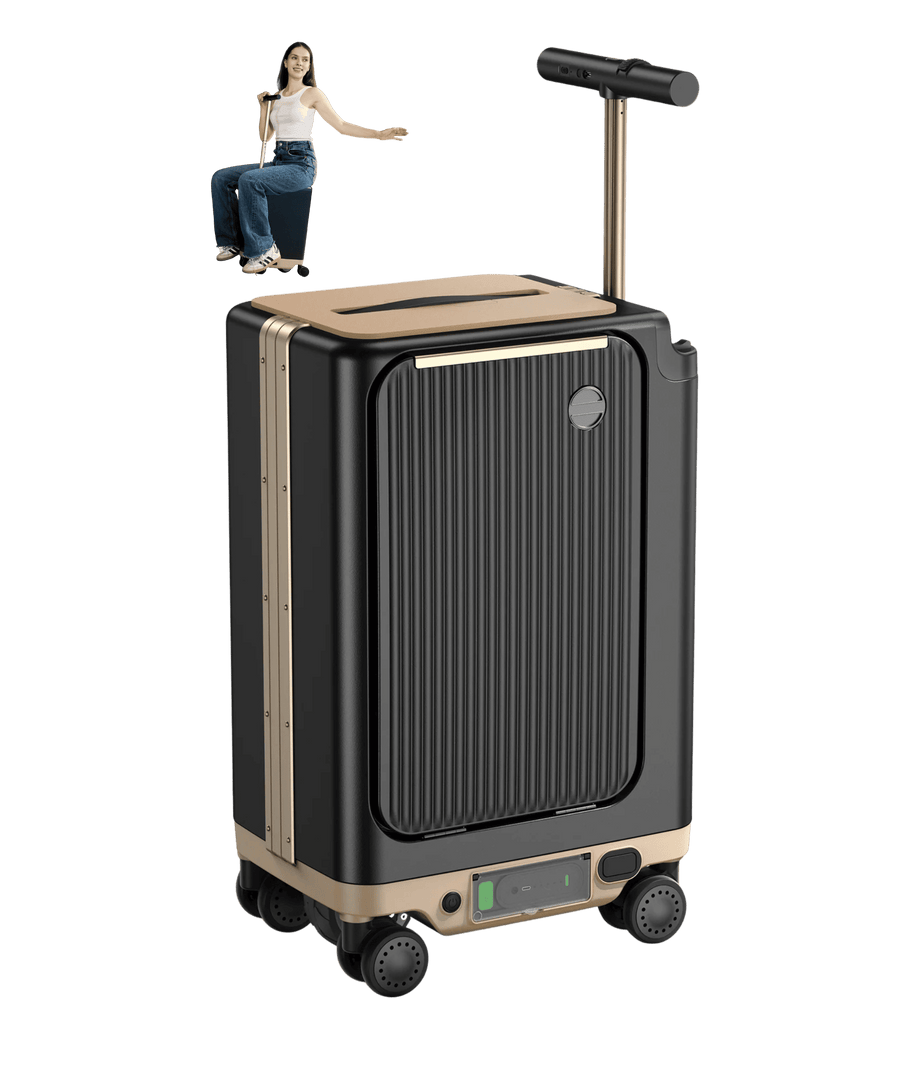























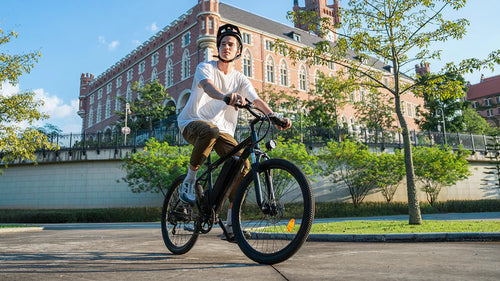
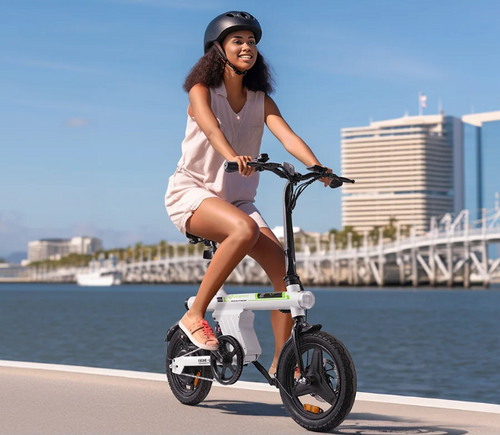

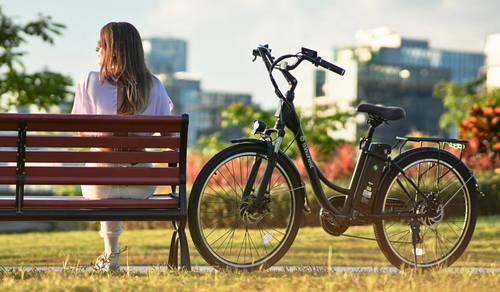

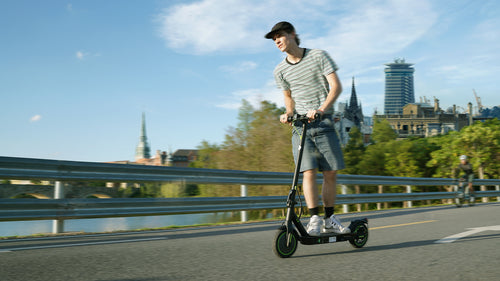

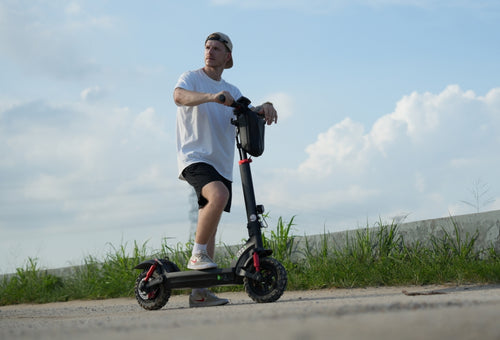
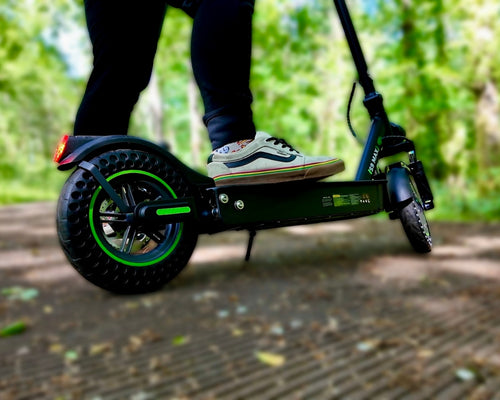
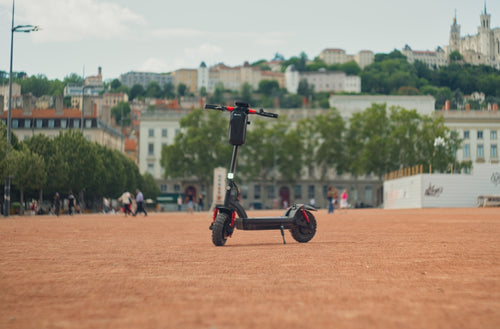
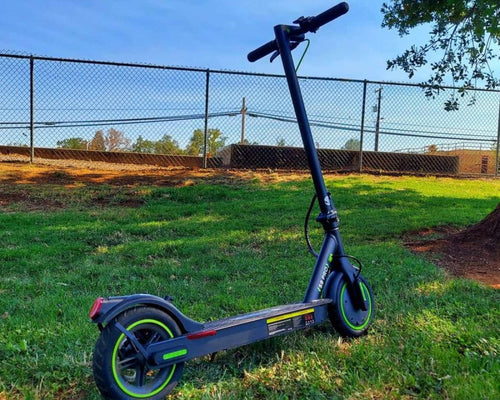





Leave a comment